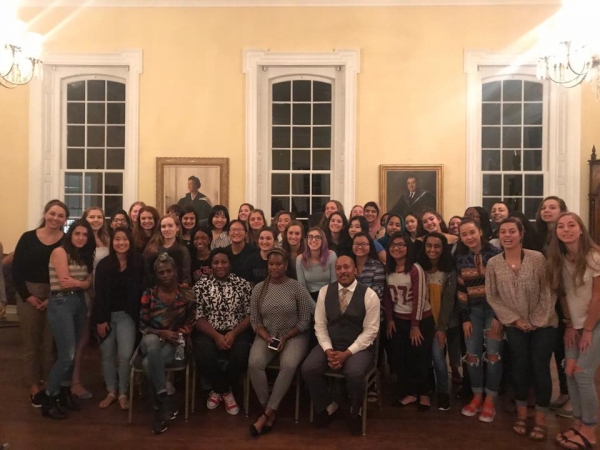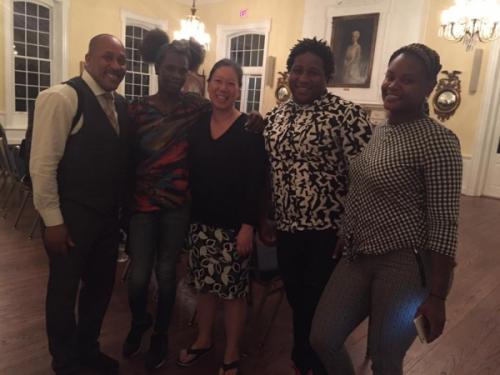The members of the Check It gang are the most unconventional people I have ever known. In many ways, they refuse to fit into any comfortable categories; they defy all ideas of gender, blackness, and poverty. This is easily the most surprising aspect of their journey - they exist unapologetically in spaces that would otherwise have them fit neatly into boxes. They are both flamboyant and masculine, feminine and “macho,” like fashion and fighting. Despite living in a cycle of poverty and violence, they’ve spent years working to come out of it. This, too, is somewhat unconventional. They worked to start their own business and create sustainable sources of income for so many of their fellow gang members. It was this sense of togetherness that pushed them forward, through darker hardships than most of us have ever known.
One of the most surprising parts of this symposium was that, while none of us could completely relate to their experiences, they didn’t close themselves off to those who could empathize with some aspect of their journey. For example, Tray spoke of a group of white Canadians who were crying while watching their documentary because they were reminded of the homophobia they too had endured. Instead of saying, “our experiences are exclusive and no one else can completely understand,” they were completely shocked at the idea that those who seemed so different from themselves could suffer from being queer as well. That is exactly the kind of movement the Check It members have created: a space that welcomes others to try to understand the struggles of those beyond themselves. I realized that it was important for us to learn about the experiences of women unlike us. Transgender, black, working-class women from D.C. who seem so far away from the comfort of the very white, very rich Foggy Bottom. In the end, despite being such a privileged group of people - those who get to attend GWU, are mostly white, come from middle class backgrounds, come from comfortable homes in comfortable neighborhoods - we were able to relate in some way to their journey. We understood, as WLP members, the importance of community and lifting each other up. We understood the power that women can have when we commit ourselves to moving forward and, despite all odds, persisting.
Ariel Santikarma IAC




